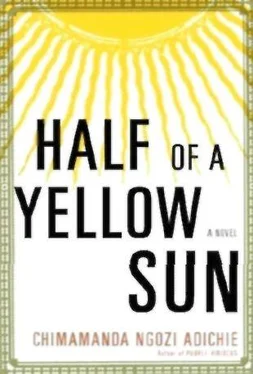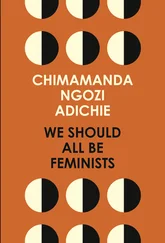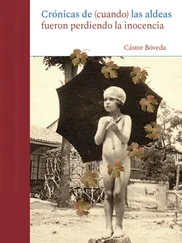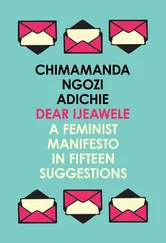They sat on the bench on the veranda. Professor Achara kept glancing down, clasping and unclasping his hands.
"I have come on a difficult matter," he said.
Fear constricted Olanna's chest: something had happened to Kainene and they had sent Professor Achara to tell her. She wanted Professor Achara to leave right away without telling her, because what she did not know would not hurt her.
"What is it?" Odenigbo asked sharply.
"I have tried to make your landlord change his mind. I have done everything I can. But he refused. He wants you to pack out in two weeks."
"I'm not sure I understand," Odenigbo said.
But Olanna was sure he did. They were being asked to move out of the house because the landlord had found somebody who would pay him twice or perhaps three times the rent.
"I'm so sorry, Odenigbo. He is usually a most reasonable man, but I suppose the times have taken away a bit of our reason."
Odenigbo sighed.
"I will help find another place," Professor Achara said.
* * *
They were lucky to find one room, now that Umuahia was thronged with refugees. The long strip of a building had nine rooms, side by side, with doors that led out onto a narrow veranda. The kitchen was at one end and the bathroom at the other, next to a grove of banana trees. Their room was closer to the bathroom and, on the first day, Olanna looked at it and could not imagine how she would live here with Odenigbo and Baby and Ugwu, eat and dress and make love in a single room. Odenigbo set about separating their sleeping area with a thin curtain, and afterward Olanna looked at the sagging string he had tied to nails on the wall, remembered Uncle Mbaezi and Aunty Ifeka's room in Kano, and began to cry.
"We'll get something better soon," Odenigbo said, and she nodded and did not tell him that she was not crying about their room.
Mama Oji lived next door. She had a hard face and blinked so rarely that Olanna was disconcerted by her wide-eyed stare the first time they spoke.
"Welcome, nno," she said. "Your husband is not here?"
"He's at work," Olanna said.
"I wanted to see him before the others do; it is about my children."
"Your children?"
"The landlord called him doctor."
"Oh, no. He has a doctorate."
Mama Oji's cool uncomprehending eyes drilled holes into Olanna.
"He is a doctor of books," Olanna said, "not a doctor for sick people."
"Oh." Mama Oji's expression did not change. "My children have asthma. Three have died since the war started. Three are left."
"Sorry. Ndo," Olanna said.
Mama Oji shrugged and then told her that all the neighbors were accomplished thieves. If she left a container of kerosene in the kitchen, it would be empty when she came out. If she left her soap in the bathroom it would walk away. If she hung out her clothes and did not keep an eye on them, they would fly off the lines.
"Be very careful," she said. "And lock your door even when you are just going to urinate."
Olanna thanked her and wished, for her sake, that Odenigbo really was a medical doctor. She thanked the other neighbors who came to the door to greet and gossip. There were too many people in the yard; a family of sixteen lived in the room next to Mama Oji. The bathroom floor was slimy with too much dirt washed off too many bodies, and the toilet was thick with the smells of strangers. On humid evenings when the odors sat heavy in the moist air, Olanna longed for a fan, for electricity. Their house in the other part of town had had electricity until 8 p. m., but here in the interior there was none. She bought oil lamps made from milk tins. Whenever Ugwu lit them, Baby squealed and ran back at the leap of naked flame. Olanna watched her, grateful that Baby did not look at yet another move, yet another new life, with any confusion at all; that instead she played with her new friend Adanna every day, shouting "Take cover!" and laughing and hiding among the banana leaves to avoid imaginary planes. Olanna worried, though, that Baby would pick up Adanna's bush Umuahia accent or some disease from the liquid-looking boils on Adanna's arms or fleas from Adanna's scrawny dog Bingo.
The first day Olanna and Ugwu cooked in the kitchen, Adanna's mother came in and held out an enamel bowl and said, "Please, give me small soup."
"No, we don't have enough," Olanna said. Then she thought of Adanna's only dress, which was made from the sack used to package relief food so that flou was plastered on her back, with the r swallowed into the seam, and she scooped some of the thin, meatless soup into the enamel bowl. The next day, Mama Adanna came in and asked for small garri, and Olanna gave her half a cup. The third day she came in when the kitchen was full of other women and again asked Olanna for soup.
"Stop giving her your food!" Mama Oji screamed. "This is what she does with every new tenant. She should go and farm cassava and feed her family and stop disturbing people! After all, she is an indigene of Umuahia! She is not a refugee like us! How can she be begging a refugee for food?" Mama Oji hissed loudly and then continued to pound palm fruit in her mortar. The efficient set to her fleshless face fascinated Olanna. She had never seen Mama Oji smile.
"But is it not you refugees who have finished all our food?" Mama Adanna said.
"Shut up your stinking mouth!" Mama Oji said. And Mama Adanna promptly did, as if she knew there was no way she could out-shout Mama Oji, with her shrill swiftness, the way she never lacked for words or the speed with which to say them.
In the evenings, when Mama Oji fought with her husband, her voice tore across the yard. "You castrated sheep! You call yourself a man, and yet you deserted the army! Let me just hear you tell anybody again that you were wounded in battle! Just open that dirty mouth one more time, and I will go and call the soldiers and show them where you have been hiding!"
Her tirade was a staple of the yard. So was Pastor Ambrose's loud praying as he walked up and down. So was the piano playing from the room right next to the kitchen. Olanna was startled when she first heard the melancholy tones, music so pure and so confidently played that it charged the air and held the swaying banana trees still.
"That is Alice," Mama Oji said. "She came here when Enugu fell. She was not even talking to anybody before. At least now she responds to greetings. She lives alone in that room. She never comes out and she never cooks. Nobody knows what she eats. The other time when we went combing, she felt too big to join us. Everybody else in the compound came out and went into the bushes and looked for vandals hiding there, but she did not come out. Some of the women even said they would report her to the militia."
The music still floated out. It sounded like Beethoven, but Olanna was not certain. Odenigbo would know. Then the tones changed to something faster, with an angry urgency that soared higher and higher until it stopped. Alice came out of her room. She was small-boned, petite, and Olanna felt gawkily overgrown just looking at her; there was something childlike about her light-skinned, almost translucent complexion and tiny hands.
"Good evening," Olanna said. "I'm Olanna. We just moved into that room."
"Welcome. I've seen your daughter." Alice 's handshake was a weak clasp, as if she handled herself with much care, as if she would never scrub herself too vigorously.
"You play so well," Olanna said.
"Oh, no, I'm no good." Alice shook her head. "Where did you come from?"
"Nsukka University. And you?"
Alice hesitated. "I came from Enugu."
"We had friends there. Did you know anybody in the Nigerian College of Arts?"
"Oh, the bathroom is free." She turned and hurried away. Her abruptness surprised Olanna. When she came out, she walked past with a vague nod and went into her room. Soon, Olanna heard the piano, something stretched out and slow, and she felt a desire to walk across and open Alice 's door and watch her play.
Читать дальше












